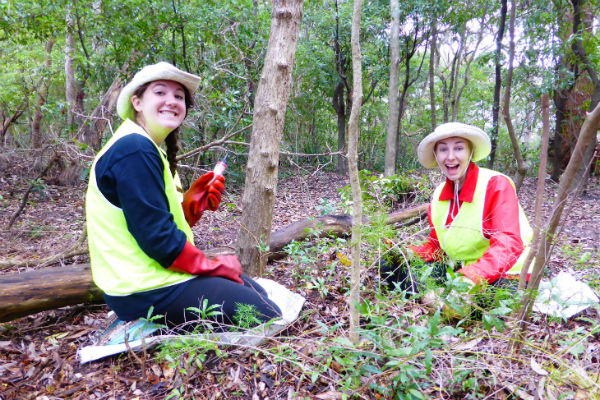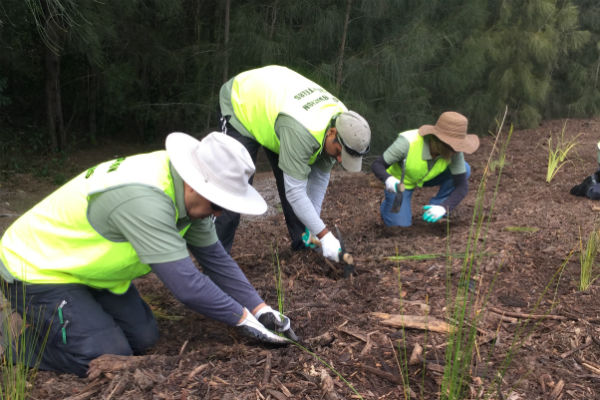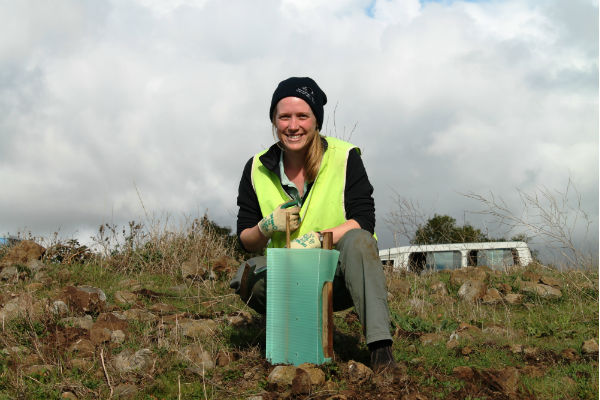
Get your FREE 30-day trial.
Start by selecting a product:
Organisations of the future are increasingly committed to sustainable business and philanthropic programs. It’s a refreshing shift that, in addition to being a force for good, is increasingly central to the attraction and retention of top-tier talent, particularly millennials and gen-z. Not-for-profits need to respond by building stronger connections with corporate volunteers and collaborators.
Founded in 1982, Conservation Volunteers Australia (CVA) is committed to creating a greater awareness about our relationship with the environment. Our mission is inspiring change by connecting people with nature.
CVA recognises that the way we live as a society is unsustainable. Our practices impact not only on the environment but the economy as well. And we know that there is a core group of people who agree with us.
But for more people to change and live more sustainably, they need to know how to do it, they need the skills to do it, and they need to care. So we get people outdoors, into natural environments and into the bush, to learn about our environment and our impact on it.
Our volunteers work with their hands, reversing some of the impact people have on the environment – it makes them understand and care about the issues. It also promotes a stewardship ethic in a really practical way, giving them the chance to do something positive.

Even the casual observer will know that the environment is beset with a wide range of problems, from climate change to human waste. We take on these challenges with a range of conservation programs, from Wild Futures, which focuses on the protection of endangered species, to Wild Places, Revive Our Wetlands and One Reef, which aim to conserve national parks and rural areas, wetlands and the Great Barrier Reef. Other programs, such as Healthy Communities, aim to create sustainable practices in urban areas.
These programs are all powered by a highly engaged network of volunteers, including kids, students, travellers, retirees and corporate groups.
While involvement with this work undoubtedly serves the greater good, there is mounting evidence to suggest that involvement can also have a deeply positive impact on organisations. The Deloitte 2018 Millennial Survey reflects the widely discussed shift towards ethical business practices. After surveying close to 11,000 young workers in 36 countries, Deloitte found that most millennials remain disillusioned with the commitment of organisations to social causes, an attitude that can have a significant impact on companies.
“These attitudes can have a direct impact on an employer’s future – and its bottom line,” the report says. “As seen in previous surveys, companies and senior management teams that are most aligned with millennials in terms of purpose, culture and professional development are likely to attract and retain the best young talent and, in turn, potentially achieve better financial performance.”

We see this play out in the corporations we work with. A company that's looking to lead in its field, and is constantly striving to improve and do better, is likely to be looking at things like employee health, or environmental sustainability.
Our volunteer days are specifically aimed at corporate organisations and we’ve found that, in addition to its altruistic value, time spent volunteering together can be a valuable bonding exercise for corporate teams.
Over the past three to four years CVA has taken really deliberate steps to increase technology across the business so we can streamline our processes and connect more meaningfully with our volunteers.
Prior to this, we had a lot of manual, paper-based reporting and processes. In the field, for example, that meant a supervisor or team leader having to fill out forms in pen and paper.
The shift has freed up their time to work with the volunteers on the ground. This has increased environmental outcomes as well as face-to-face engagement with volunteers - they're spending less time filling out paperwork.
At the moment we use the Salesforce Nonprofit Success Pack to manage our corporate partners and their contracts, and we use a whole range of different systems to manage all different aspects of our projects - the projects themselves, the volunteers, the activities for those projects, donors, members, partners and contracts.

Technology also plays a part in all of our interactions, communications and engagement, and the record keeping associated with those interactions.
That broader tech stack that sits alongside the Salesforce Nonprofit Success Pack was custom built for us about 10 years ago. It's coming to the end of its life and, from talking with staff and seeing how they operate day to day, we've seen that the current systems don't have the flexibility that we need now.
There's a need to improve the way we do some of our reporting and improve our interactions with volunteers, donors, members and partners.
Salesforce has been identified as the system to take us into that next phase, for its flexibility and integrations, and the ability it will give us to manage different groups of our customers - whether corporate, partners, donors or community volunteers.
The plan is that by making this change, we'll be able to communicate better with our volunteers and partners - we'll have more meaningful engagement with them and be able to personalise and target out communications. For example, offices that have projects coming up that they need volunteers for will know who they can try to engage with locally, and do it more consistently.
If we continue to engage with them, they'll keep coming back and keep volunteering. So they'll get the benefits to them personally by volunteering but we'll also get the benefits to the environment as well.